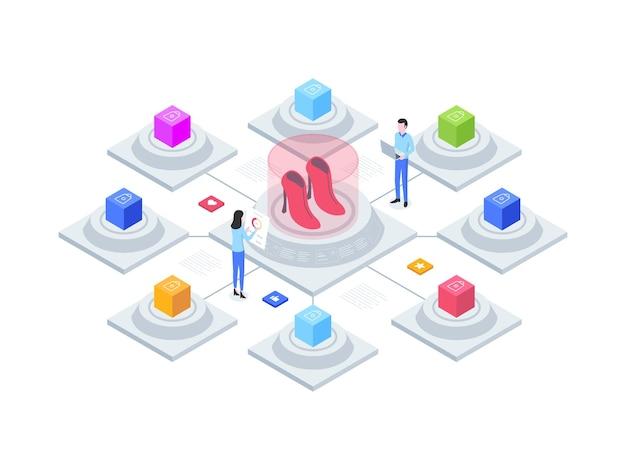As businesses strive to be more competitive, there is an increasing need for effective enterprise risk management (ERM) solutions that provide both compliance and governance. One popular option is NetSuite ERM – a cloud-based enterprise resource planning (ERP) software designed to support financial operations seamlessly. The software boasts of an intuitive interface and innovative features that support internal controls, eliminating the need for manual and cumbersome processes.
But, what exactly is Sox Compliance? In simple terms, it refers to a set of regulations put in place by the US Congress, commonly referred to as the Sarbanes-Oxley Act of 2002, mandating companies to establish and maintain effective internal control over financial reporting. A key part of this regulation stipulates that companies and accounting firms must undergo a thorough Sox Compliance audit yearly.
In this article, we delve into the world of Sox Compliance, NetSuite ERM, and how adopting it can help your business maintain governance and comply with regulations with ease. We will take you through the basics of NetSuite Compliance, its internal controls capabilities, and assess whether NetSuite is Sox-compliant and if it has a SOC 1 Certificate. We’ll also look at Sox Compliance Audit and what it entails, as well as the value of Sox Compliance in ERP software.
By the end of this blog post, you will have a complete and comprehensive understanding of Sox Compliance and how NetSuite ERM can help your business achieve compliance in a straightforward and cost-effective way.
Why NetSuite is a SOX Compliance Leader
If you’re looking for an enterprise resource planning (ERP) system that is compliant with the Sarbanes-Oxley (SOX) Act, NetSuite is an excellent choice. This cloud-based software suite offers a wide range of features and functionalities that can help you achieve SOX compliance, no matter the complexity or size of your organization.
The Benefits of NetSuite for SOX Compliance
With NetSuite, you get a comprehensive set of tools and functionalities that help you meet all the SOX compliance requirements, including:
- Financial Controls: NetSuite offers robust financial controls, including segregation of duties, journal entry approvals, and audit trails ensuring all activities are tracked and monitored.
- Data Security: NetSuite has adopted best practices to ensure data security and confidentiality, including multi-factor authentication, TLS encryption, and 24/7 monitoring.
- Financial Reporting: NetSuite’s advanced financial reporting tool ensures that all financial statements and reports are accurate and in compliance with SOX requirements.
- Audit Trails: NetSuite’s audit trails help you track changes to system configuration, user activities, and financial transactions.
NetSuite’s SOX Compliance Evolution
NetSuite’s SOX compliance is built on over a decade’s worth of experience and expertise. The company dedicated significant resources to obtaining its own compliance certification in 2007 to prove its commitment to security and compliance.
Since then, NetSuite has been continuously evolving its platform to ensure that it remains compliant with all relevant regulations, including SOX. Today, NetSuite is one of the most respected names in cloud ERP, trusted by businesses all around the world to help them maintain compliance and protect against financial fraud.
NetSuite is a SOX compliance leader. With its advanced financial reporting tools, robust financial controls, and audit trails, NetSuite offers a comprehensive solution that can help you meet all your SOX requirements. Whether you’re a small business or a large enterprise, NetSuite has the tools and functionalities you need to stay compliant and focused on your business goals.
Netsuite ERM: The Ultimate Way to Manage Your Enterprise Risk
As an organization that needs to comply with SOX, having a robust Enterprise Risk Management (ERM) system is a must. Netsuite ERM is an all-in-one solution for managing enterprise risk. Here is why every organization that needs to comply with SOX should have a Netsuite ERM.
Reduce the Time and Effort Needed for Risk Management
Managing enterprise risk can be time-consuming and tedious, especially when doing it manually. Netsuite ERM simplifies the risk management process by automating risk assessments, data analysis, and reporting. With Netsuite ERM, you can save time and effort, allowing you to focus on other critical business activities.
Ensure you Meet Regulatory Requirements
SOX compliance is not optional for public companies; it’s a must. Companies that don’t comply can face regulatory penalties, civil lawsuits, and even criminal charges. Netsuite ERM helps you ensure your organization is fully compliant with SOX regulations by providing a central platform for managing risk assessments, and by providing a comprehensive framework for documenting and reporting controls.
Identify and Mitigate Risks in Real-time
Risks can emerge at any time, and when they do, they can be costly to an organization. Netsuite ERM helps you identify and mitigate risks in real-time by providing a real-time dashboard that shows risk levels, and alerts you when risks exceed pre-defined thresholds. With Netsuite ERM, you can take immediate action before risks grow more significant.
Increase Collaboration and Accountability
Netsuite ERM promotes collaboration and accountability throughout the organization. It allows you to assign risk assessments to different departments, define roles and responsibilities, and track progress. With Netsuite ERM, you can have a central platform for all your ERM activities, enabling you to work together seamlessly towards achieving your risk management goals.
In conclusion, Netsuite ERM is an excellent solution for organizations that need to comply with SOX. It simplifies risk management, ensures regulatory compliance, identifies and mitigates risks in real-time, and promotes collaboration and accountability. By using Netsuite ERM, you can focus on growing your business while Netsuite takes care of your enterprise risk management needs.
Netsuite Compliance
When it comes to SOX compliance Netsuite offers a robust suite of tools to ensure your business stays compliant with internal controls and regulations. Netsuite has an extensive list of compliance certifications, including SOC 1, SOC 2, and SOC 3. These certifications ensure that Netsuite’s cloud infrastructure, data centers, and controls are meeting the highest industry standards.
Benefits of Netsuite Compliance
There are numerous benefits to using Netsuite compliance tools to manage your business. First and foremost, Netsuite’s compliance tools can help ensure that your business is compliant with applicable regulatory requirements and internal controls. This can help you avoid costly fines and other penalties for non-compliance.
In addition, Netsuite’s compliance tools can help you maximize your business’s efficiency and effectiveness by automating key compliance processes. This can help reduce the amount of time and resources required to manage compliance.
Key Features of Netsuite Compliance
Netsuite offers a suite of compliance tools that can help businesses in a variety of industries manage their compliance requirements. Some of these key features include:
-
Advanced Financial Controls: Netsuite allows you to establish and enforce financial controls across your entire business. You can easily manage financial activities, such as journal entries, account reconciliations, and approvals.
-
Audit Trail: Netsuite’s audit trail provides a complete record of all transactions and activities in your system. This allows you to quickly identify any potential issues and take corrective action.
-
Segregation of Duties: Another key compliance feature of Netsuite is segregation of duties. This ensures that no single individual has too much control over a particular process or activity, reducing the risk of fraudulent activities.
-
Reporting and Analytics: Netsuite’s reporting and analytics tools allow you to quickly generate compliance reports and monitor key compliance metrics. This makes it easy to identify potential issues and take proactive steps to address them.
In conclusion, Netsuite compliance tools provide a comprehensive suite of features designed to help businesses stay compliant with internal controls and regulations. By utilizing these tools, businesses can reduce their risk of non-compliance and maximize their efficiency and effectiveness.
Netsuite Governance
When it comes to Netsuite compliance, governance is one of the critical components. Effective governance ensures that companies align with industry best practices and regulatory requirements. Organizations that don’t have proper governance practices in place are at a higher risk for non-compliance and may face severe consequences such as penalties and reputational damage.
The Importance of Netsuite Governance
Netsuite governance involves the establishment and enforcement of policies, procedures, and controls to manage an organization’s Netsuite environment appropriately. It helps companies avoid errors, fraudulent activities, and security breaches. Strong governance practices can help organizations reduce risks and ensure better decision making.
Netsuite Governance Framework
A governance framework is a set of guidelines and procedures to ensure that an organization manages risks adequately, complies with laws and regulations, and meets stakeholder expectations. Netsuite governance frameworks assist organizations in developing a structured approach to managing their Netsuite operations.
Components of Netsuite Governance
The components of a Netsuite governance framework include:
Policies and Procedures
These are written documents that outline an organization’s expectations, standards, and guidelines. Policies and procedures provide a foundation for Netsuite governance and help ensure consistency and compliance.
Risk Management
This component involves identifying, assessing, and managing risks that can impact an organization’s Netsuite environment. Effective risk management helps companies avoid potential issues that can arise from non-compliance.
Compliance Management
This component involves ensuring that an organization complies with applicable laws, regulations, and standards. It helps companies avoid legal issues and mitigates non-compliance risks.
Performance Management
This component involves measuring and monitoring the effectiveness of governance practices. It helps companies identify gaps in their procedures and processes and make improvements where necessary.
Netsuite governance is crucial to maintaining compliance and reducing risk. An effective governance framework includes policies and procedures, risk management, compliance management, and performance management. Organisations should implement governance practices that align with their business objectives and regulatory requirements.
Sox Compliance Companies
SOX compliance is a critical aspect of a company that operates in the US that is publicly traded or has registered securities. Navigating the complexities of SOX compliance is incredibly challenging, and that’s why companies seek assistance from SOX compliance companies. These companies are dedicated to helping your organization fulfill SOX compliance requirements, and they come in different shapes and sizes.
Types of Sox Compliance Companies
-
Large auditing firms: These are the big four auditing firms – PwC, Deloitte, EY, and KPMG – that provide SOX compliance services. These firms work with large corporations and can be expensive for small or mid-sized organizations.
-
Boutique firms: They are smaller firms that specialize in SOX compliance and internal controls. They offer personalized services and competitive pricing.
-
Consulting firms: Consulting firms that specialize in SOX compliance can provide different solutions. From risk management to internal control testing, they offer a wide range of SOX-related services.
-
Technology companies: Technology-based SOX compliance companies offer solutions like automated internal controls testing, workflow management applications, and risk assessment tools.
Choosing the Right Sox Compliance Company
Choosing the right SOX compliance company can make all the difference in achieving your compliance goals. Here are some things to consider when selecting a company:
-
Experience: Check the company’s experience in providing SOX compliance services. Choose one that has worked with companies in your industry or similar to yours.
-
Pricing: Compare pricing from different companies to find the best deal without compromising quality.
-
Customized services: Choose a company that offers customized services that meet your specific needs.
-
Quality of service: Make sure you choose a company that has a reputation for providing quality services.
Companies that understand SOX compliance requirements know that turning to SOX compliance companies can ease the burden of compliance. SOX compliance companies help your organization navigate the complexities of compliance and provide a better understanding of key risks and controls. Choosing the right company is a crucial decision that can make a difference in your organization’s compliance success.
Is NetSuite SOC Compliant
NetSuite is a cloud-based ERP system that helps companies streamline their operations, manage finances, and access customer information efficiently. But is NetSuite SOC compliant? In this section, we’ll answer this question by discussing what SOC is and how NetSuite is SOC compliant.
What is SOC
SOC (System and Organization Controls) is a set of standards developed by the American Institute of Certified Public Accountants (AICPA) that organizations can use to measure their internal control systems’ effectiveness. These standards comprise three types of SOC reports:
- SOC 1: Reports on controls’ effect on financial reporting
- SOC 2: Reports on controls’ effect on security, availability, processing integrity, confidentiality, and privacy
- SOC 3: Summarized version of SOC 2 reports, available to the public.
Is NetSuite SOC Compliant
Yes, NetSuite is SOC compliant, specifically SOC 1 and SOC 2 Type II-compliant. NetSuite undergoes independent audits regularly to ensure that internal control is maintained and that customer data is kept safe. NetSuite’s SOC compliance demonstrates the highest level of security and control, making it a trustworthy option for companies in various industries. This level of compliance is evidence that NetSuite is a leader in cloud ERP and that they take this aspect of their business seriously.
The Importance of SOC Compliance
SOC compliance assures that a company’s critical data, and particularly financial data, is secure and well-maintained. The SOC compliance also provides a sense of trust between clients and service providers. By providing customer data security, a company encourages customer confidence in its service and promotes customer loyalty.
NetSuite is SOC-compliant, proving that it prioritizes sensitive customer data security and meets the highest standards for cloud-based ERP systems. When choosing a cloud-based ERP system, it is crucial for your company to select one that undergoes regular SOC audits to ensure that your data is protected. You can trust NetSuite to safeguard your company’s financial data and keep crucial data secure, ensuring customer confidence and satisfaction.
Netsuite Internal Controls
When it comes to achieving SOX compliance in Netsuite, internal controls play a crucial role. These controls ensure that financial statements are accurate, reliable, and free from any material misstatement. In this section, we’ll discuss some of the internal control features that Netsuite offers to help companies achieve SOX compliance.
Segregation of Duties
Segregation of duties is a critical component of SOX compliance. Netsuite has built-in features that ensure segregation of duties, preventing users from performing conflicting functions. For example, a user who has access to create a purchase order cannot approve it. These access controls ensure that no single user has the ability to commit fraud or make errors.
Change Management
Change management controls are crucial to ensuring that unexpected changes do not occur within a system. Netsuite has several change management features, such as change tracking, that allow the auditing of system changes. Additionally, the system requires approvals for critical system changes to ensure that any significant changes go through a controlled process.
Access Controls
Access controls restrict access to sensitive areas of Netsuite. These controls ensure that users who require access to sensitive information such as financial data, are authorized to receive it. At the same time, those who are not authorized cannot access it, reducing the risk of fraud and misuse of data.
Application and System Logging
Application and system logs are crucial elements of monitoring internal controls. In Netsuite, application and system logs are used to capture user activity, providing a detailed trail to monitor activities. With this logging feature, you can monitor user activity, including which users accessed which data and when, and also monitor changes in critical system settings.
In conclusion, Netsuite provides a lot of features for SOX compliance, but it’s up to the organization to implement and configure these features correctly. Proper implementation of internal controls in Netsuite, such as segregation of duties, change management, access controls, and application and system logging, can help ensure that a company’s financial data is reliable and free from material misstatement.
Does NetSuite have a SOC 1
If you’re a business owner using NetSuite, you may be wondering if the software has a SOC 1 compliance certification. SOC 1 stands for Service Organization Control 1, which is a report on controls related to financial reporting. This report is essential if you’re handling the financial reporting of your clients or investors.
Overview of SOC 1 Compliance
Before we delve into whether NetSuite has a SOC 1 report, let’s first understand what SOC 1 compliance means. SOC 1 is a report on the controls of your financial reporting that are designed to ensure the accuracy, completeness, and integrity of financial information. The report details whether the controls are effective, tested, and provide reasonable assurance regarding the financial statements’ accuracy.
There are two types of SOC 1 reports: Type 1 and Type 2. A Type 1 report focuses on the design of the controls, while a Type 2 report evaluates the effectiveness of the controls over a particular period. Both reports are essential and demonstrate that a company has appropriate controls in place for financial reporting.
NetSuite’s SOC 1 Compliance
Now, onto the question of whether NetSuite has a SOC 1 report. Yes, NetSuite does have a SOC 1 Type 2 report as of 2021. This means that an independent auditor has tested and validated that NetSuite’s control activities and procedures over financial reporting for a specific period.
The report is available to NetSuite customers who have signed a non-disclosure agreement (NDA). Customers who are audited can fulfill half of their SOC 1 requirements by relying on NetSuite’s report and will only have to audit the controls that are not covered by NetSuite.
In summary, NetSuite has a SOC 1 Type 2 report that demonstrates the effectiveness of its control activities and procedures over financial reporting. This report provides assurance to customers that NetSuite is taking steps to ensure their financial reporting is accurate and complete. If you’re a NetSuite customer, you can use this report to fulfill half of your SOC 1 requirements.
What is SOX Compliance Audit
If you are reading this post, you might have heard the term SOX compliance thrown around, but what exactly does it mean? Put simply, SOX compliance is the process of ensuring that a company’s financial reporting is accurate and transparent. But why is this necessary?
In the early 2000s, major financial scandals, such as Enron, Tyco, and WorldCom, rocked the business world, causing investors to lose faith in corporate America. To restore confidence and protect investors, the US Congress passed the Sarbanes-Oxley Act (SOX) in 2002, which established strict rules and guidelines for public companies and accounting firms.
To comply with SOX regulations, companies must undergo regular audits to ensure they are following the rules and regulations set forth in the act. These audits are typically conducted by independent third-party auditors, and they examine a company’s financial statements, internal controls, and reporting processes.
Why is SOX Compliance Important
SOX compliance is essential because it promotes transparency and accountability in the financial reporting process. By requiring companies to provide accurate and timely financial information, investors can make informed decisions about where to invest their money.
More than just promoting transparency, SOX compliance has significant legal and financial implications for non-compliant companies. Companies that fail to comply with SOX regulations can face hefty fines, legal action, and damage to their reputation that can take years to recover from.
How Does SOX Compliance Affect Netsuite
Netsuite is a cloud-based enterprise resource planning (ERP) system that supports various business operations, including accounting and financial reporting. Because of this, Netsuite providers and users must ensure their system is SOX compliant.
Netsuite has designed its software to comply with SOX regulations, making it easier for companies to meet their compliance needs. However, to achieve SOX compliance, companies must ensure they are using the software correctly and following the internal controls established by Netsuite.
In summary, SOX compliance is an essential aspect of financial reporting and is necessary to ensure transparency and accountability. Companies using Netsuite must ensure that they are following the regulations set forth in the act to avoid potential legal and financial consequences.
What is SOX Compliance in ERP
When it comes to running a business, there are several rules and regulations that you need to follow. One of the most important regulations that businesses need to comply with is the Sarbanes-Oxley Act (SOX), which was enacted in 2002 in the wake of corporate scandals such as Enron and WorldCom. In this subsection, we will talk about what SOX compliance is and its importance in ERP.
What is SOX
The Sarbanes-Oxley Act, also known as the Public Company Accounting Reform and Investor Protection Act, is a United States federal law that was passed to protect investors from fraudulent accounting activities by corporations. SOX sets new or expanded requirements for all the United States public company boards, management, and accounting firms.
What is SOX Compliance in ERP
SOX compliance in ERP means that the financial and accounting processes of an organization need to comply with the provisions of the SOX Act, and the processes must reflect necessary controls, including those applicable to the IT general controls (ITGC). SOX compliance in ERP ensures the accuracy and integrity of financial data and reports.
Importance of SOX Compliance in ERP
SOX compliance helps organizations to maintain transparency and accountability with respect to their financial reporting. It is essential to safeguard the interests of stakeholders, investors, and the public, and to ensure that the company is operating within the law. In addition, SOX compliance in ERP helps to improve the overall operations of the organization and its accuracy of financial reporting. Since SOX compliance requires companies to implement strict internal controls, this can help reduce the risk of fraud and other financial irregularities.
In summary, SOX compliance in ERP is a crucial aspect of a company’s financial and IT processes. It helps ensure the integrity and accuracy of financial data and reports, protects stakeholders’ interests, and promotes good governance practices. As a business owner or stakeholder, it is crucial to ensure that your company is SOX compliant to avoid the risk of costly penalties and reputational damage.



